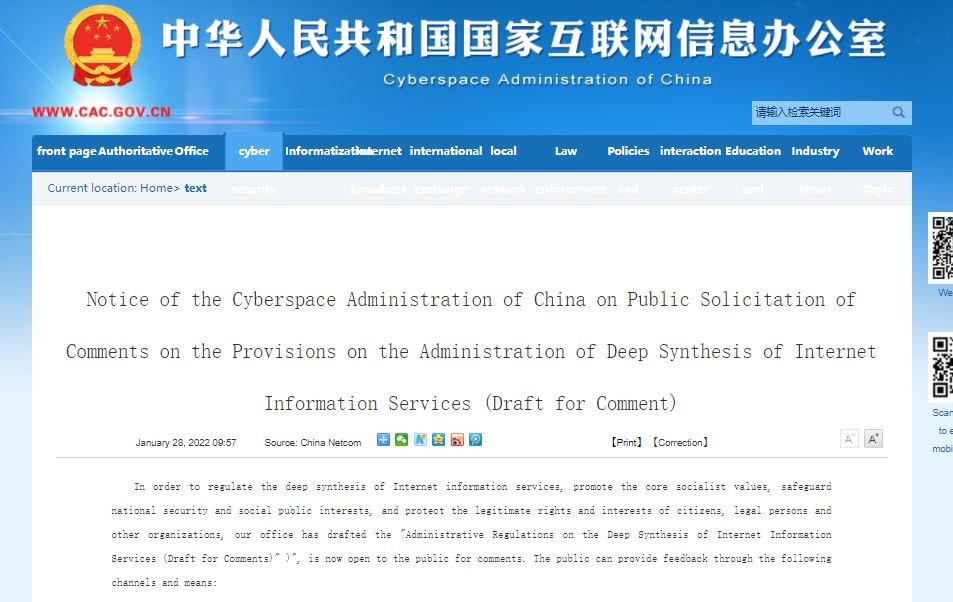Last week Chinese government introduced a bill designed to impose strict measures against the use of deepfake, an application of artificial intelligence popularly used to adapt digital content in realistic simulations of human activity. China’s Cyberspace Administration is pushing this initiative forward, stating that it is necessary to establish strict regulations to prevent the malicious use of this technology.
The agency argues that cybercriminals are increasingly resorting to the use of this kind of technology, so the first specification of the bill qualifies as illegal any attempt to use this technology for malicious purposes. Among the activities that Chinese authorities seek to ban is the delivery of fake news and the depiction of false sexual activities using deepfake.

The law would also specify some legitimate uses for this technology, although at the moment it is unknown in which cases this non-malicious use would be considered. On the other hand, the project would also seek to establish the necessary mechanisms for the protection of these digital assets without incurring in violations of the privacy of users.
This project was announced during an event in which the directors of some of the most important technology companies operating in China participated, who were notified about this initiative previously and committed to apply the necessary measures so that their respective companies comply with the regulations.
Zhuang Rongwen, deputy director of China’s Central Propaganda Department, also called on big tech companies to ensure they continue to strengthen Chinese society with brilliant online services, while also stepping up surveillance to ensure that the Internet on their territory remains free of the kind of content the government deems harmful to Chinese society.
Representatives of major companies such as People’s Daily Online, JD.com, Kuaishou, Xiaomi and Meituan weighed in with their views on how big tech companies can ensure that China’s internet conforms to the Communist Party’s line, so these firms are expected to provide full support for the new bill.
To learn more about information security risks, malware variants, vulnerabilities and information technologies, feel free to access the International Institute of Cyber Security (IICS) websites.
He is a cyber security and malware researcher. He studied Computer Science and started working as a cyber security analyst in 2006. He is actively working as an cyber security investigator. He also worked for different security companies. His everyday job includes researching about new cyber security incidents. Also he has deep level of knowledge in enterprise security implementation.
